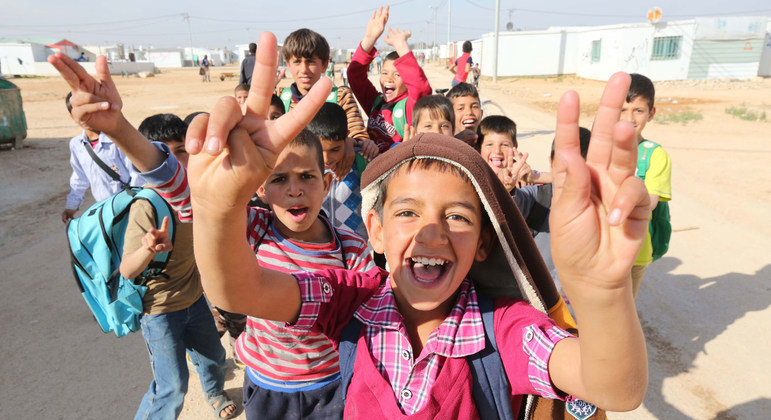The initiative, prompted by Malaysia, shows that a large majority of nations are now standing shoulder-to-shoulder with the global ceasefire call that Secretary-General António Guterres made back in March, when the pandemic was just picking up speed.
The statement on Tuesday expressed “deep concern” for those areas of the world where fighting continues, particularly in the midst of the global health crisis.
While spotlighting the impact on the world’s most vulnerable, especially women and children, the document reads: “We must muster all our efforts to save lives and alleviate social and economic devastation on our peoples.”
Acting collectively
The signatories underscored that diplomatic action and collective efforts are needed in the common fight against COVID-19 and reaffirmed the importance of “global unity and solidarity in confronting this scourge”.
Against the backdrop of the pandemic’s profound impact on all three key UN pillars – peace and security, development and human rights – the States underscored the importance of multilateralism, rule of law, diplomacy and negotiation as “fundamental” in promoting and supporting peaceful dispute settlements.
“We are mindful that a peaceful condition is indispensable to facilitate humanitarian access in fragile and conflict-affected situations”, the statement spelled out, highlighting the belief that “efforts to relieve human suffering and conflict resolution should go hand-in-hand in leading action to address the pandemic”.
Give peace a chance
In approaching the 75th anniversary of the signing of the UN Charter, the signatories called on all actors “to do the utmost” to respond to the ceasefire appeal.
“We remain united in our shared humanity and in giving peace a chance.”
Standing in solidarity
In alphabetical order, here is the full list of signatories endorsing the UN chief’s global ceasefire appeal, so far:
Afghanistan, Albania, Algeria, Andorra, Angola, Antigua and Barbuda, Argentina, Armenia, Australia, Austria, Bahamas, Bahrain, Bangladesh, Barbados, Belarus, Belgium, Belize, Benin, Bhutan, Bolivia, Bosnia and Herzegovina, Botswana, Brazil, Brunei Darussalam, Bulgaria, Burkina Faso, Burundi, Cabo Verde, Cambodia, Canada, Central African Republic, Chile, China, Colombia, Comoros, Costa Rica, Côte D’ivoire, Croatia, Cyprus, Czech Republic, Denmark, Djibouti, Dominica, Dominican Republic, Ecuador, Egypt, El Salvador, Equatorial Guinea, Eritrea, Estonia, Eswatini, Ethiopia, Fiji, Finland, France, Gambia, Georgia, Germany, Ghana, Greece, Grenada, Guatemala, Guinea, Guyana, Haiti, Honduras, Hungary, Iceland, Indonesia, Iraq, Ireland, Italy, Jamaica, Japan, Jordan, Kazakhstan, Kenya, Korea, Laos, Latvia, Lebanon, Lesotho, Liberia, Libya, Liechtenstein, Lithuania, Luxembourg, Madagascar, Malawi, Malaysia, Maldives, Mali, Malta, Marshall Islands, Macedonia, Mauritania, Mauritius, Mexico, Micronesia, Moldova, Monaco, Mongolia, Montenegro, Morocco, Mozambique, Namibia, Nepal, Netherlands, New Zealand, Niger, Nigeria, Norway, Oman, Palau, Palestine, Panama, Paraguay, Peru, Philippines, Poland, Portugal, Qatar, Romania, Rwanda, Saint Kitts and Nevis, Saint Lucia, Saint Vincent and the Grenadines, Samoa, San Marino, Sao Tome and Principe, Saudi Arabia, Senegal, Serbia, Seychelles, Sierra Leone, Singapore, Slovakia, Slovenia, South Africa, South Sudan, Spain, Sri Lanka, Sudan, Suriname, Sweden, Switzerland, Tajikistan, Tanzania, Thailand, Timor-Leste, Togo, Tonga, Trinidad and Tobago, Tunisia, Turkey, Turkmenistan, Tuvalu, Uganda, Ukraine, United Arab Emirates, United Kingdom, Uruguay, Uzbekistan, Vanuatu, Venezuela, Viet Nam, Yemen, Zambia, Zimbabwe and the European Union.



